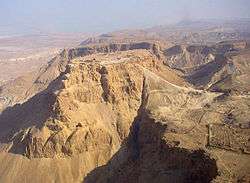73
This article is about the year 73. For other uses, see 73 (disambiguation).
| Millennium: | 1st millennium |
|---|---|
| Centuries: | 1st century BC · 1st century · 2nd century |
| Decades: | 40s · 50s · 60s · 70s · 80s · 90s · 100s |
| Years: | 70 · 71 · 72 · 73 · 74 · 75 · 76 |
| 73 by topic | |
| Politics | |
| State leaders – Sovereign states | |
| Birth and death categories | |
| Births – Deaths | |
| Establishment and disestablishment categories | |
| Establishments – Disestablishments | |
| Gregorian calendar | 73 LXXIII |
| Ab urbe condita | 826 |
| Assyrian calendar | 4823 |
| Bengali calendar | −520 |
| Berber calendar | 1023 |
| Buddhist calendar | 617 |
| Burmese calendar | −565 |
| Byzantine calendar | 5581–5582 |
| Chinese calendar | 壬申年 (Water Monkey) 2769 or 2709 — to — 癸酉年 (Water Rooster) 2770 or 2710 |
| Coptic calendar | −211 – −210 |
| Discordian calendar | 1239 |
| Ethiopian calendar | 65–66 |
| Hebrew calendar | 3833–3834 |
| Hindu calendars | |
| - Vikram Samvat | 129–130 |
| - Shaka Samvat | N/A |
| - Kali Yuga | 3173–3174 |
| Holocene calendar | 10073 |
| Iranian calendar | 549 BP – 548 BP |
| Islamic calendar | 566 BH – 565 BH |
| Javanese calendar | N/A |
| Julian calendar | 73 LXXIII |
| Korean calendar | 2406 |
| Minguo calendar | 1839 before ROC 民前1839年 |
| Nanakshahi calendar | −1395 |
| Seleucid era | 384/385 AG |
| Thai solar calendar | 615–616 |
| Wikimedia Commons has media related to 73. |

Fortress Masada
Year 73 (LXXIII) was a common year starting on Friday (link will display the full calendar) of the Julian calendar. At the time, it was known as the Year of the Consulship of Domitianus and Catullus (or, less frequently, year 826 Ab urbe condita). The denomination 73 for this year has been used since the early medieval period, when the Anno Domini calendar era became the prevalent method in Europe for naming years.
Events
By place
Roman Empire
- Spring – The Roman governor Lucius Flavius Silva lays siege to Masada, the last outpost of the Jewish rebels following the end in 70 of the First Jewish-Roman War (Jewish Revolt). The Roman army (Legio X Fretensis) surrounds the mountain fortress with a 7-mile long siege wall (circumvallation) and builds a rampart of stones and beaten earth against the western approach. After the citadel is conquered, 960 Zealots under the leadership of Eleazar ben Ya'ir commit mass suicide when defeat becomes imminent.
- Pliny the Elder serves as procurator in Hispania Tarraconensis.
- Titus Flavius Domitianus becomes Roman Consul.
- Emperor Vespasian begins conquest of territory east of the upper Rhine and south of the Main. In addition, he reorganizes the defenses of the upper and lower Danube.
Asia
- February – The Chinese Han Dynasty launches a major campaign against the Xiongnu, whom they confront in the Battle of Yiwulu in the Kumul oasis, an ultimate Han military victory led by General Dou Gu (d. 88).
- Ban Chao (Pan-Ch’ao), competing with the Xiongnu, imposes a Chinese protectorate on the kings of Lop Nor and Khotan in the Tarim basin, with the aim of controlling the Silk Road.
By topic
Arts and sciences
References
This article is issued from Wikipedia - version of the 8/17/2016. The text is available under the Creative Commons Attribution/Share Alike but additional terms may apply for the media files.